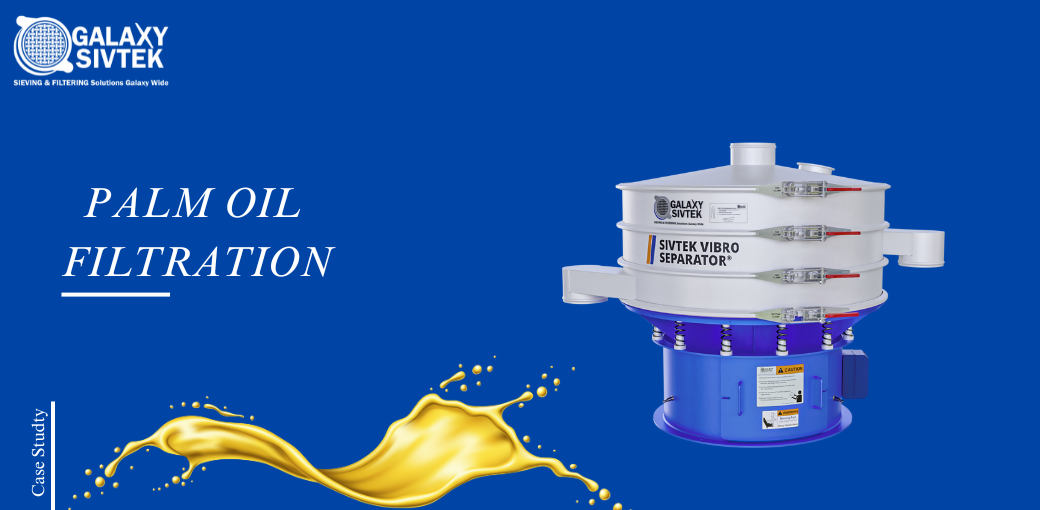
Case Study: Enhancing Palm Oil Filtration Efficiency with Vibro Separator for Sludge Dewatering
Overview
In the palm oil production process, the management of by-products and waste, particularly sludge from palm oil filtration, presents significant operational challenges. Traditionally, this sludge – a mixture of oil, water, and solids – is treated through natural dewatering methods, which are not only time-consuming but also space-intensive and environmentally taxing. This case study explores how the implementation of the Sivtek Vibro Separator, a palm oil filter machine, revolutionized the dewatering process by efficiently separating sludge and reducing drying times significantly.
Requirements & Challenges
The palm oil industry frequently deals with large volumes of sludge that contain a mix of oil, water, and other solids. The traditional method of handling this sludge involved depositing it in large pits for natural dewatering, a process heavily reliant on solar heat. This method posed several challenges:
- Time-Consuming: It typically took 7 to 8 days to reduce the moisture content adequately, significantly slowing down the production cycle.
- Space Requirement: Large tracts of land were required to accommodate the pits, limiting the available space for other operational needs.
- Environmental Impact: The open pits posed potential risks of groundwater contamination and Odor problems, leading to environmental compliance issues.
Solution
To address these challenges, the palm oil processing facility implemented the Sivtek Vibro Separator, a robust vibrating screen technology designed to separate solids from liquids quickly and efficiently. This technology was introduced into the sludge handling process to improve the separation of water from the sludge before the drying stage.
Key features of the Sivtek Vibro Separator include:
- High-frequency vibrations enhance the separation of sludge from water.
- A design that supports quicker processing times without compromising on the quality of separation.
- The capability to reduce the water content in the sludge to about 20%, thereby making the drying process faster and more efficient.
Results
The introduction of the Sivtek Vibro Separator had immediate and significant impacts:
- Reduced Drying Time: The time required to dry the sludge in pits was decreased from 7-8 days to a maximum of 3 days, enhancing the overall efficiency of the production process.
- Less Land Use: With faster drying times, the size and number of pits required were reduced, freeing up land for other productive uses and reducing the environmental footprint.
- Improved Operational Efficiency: The faster processing times allowed for a more streamlined operation, reducing bottlenecks in the production process caused by the sludge dewatering stage.
Conclusion
The implementation of the Sivtek Vibro Separator in the dewatering process of palm oil sludge marks an advancement in palm oil filtration technology, both in terms of operational efficiency and environmental impact. By reducing its dependency on natural dewatering methods, the facility not only optimized its use of resources but also aligned better with ecological standards and regulations. This case study demonstrates that, with the right technology, challenges in traditional manufacturing processes can be transformed into opportunities for efficiency and growth, setting a benchmark for others in the industry.
